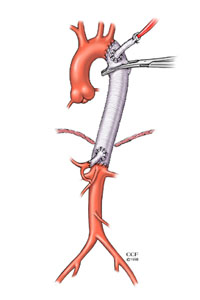It's Topic Tuesday!
- carinandersen
- May 3, 2022
- 2 min read
Updated: May 8, 2022
Today is Topic Tuesday at Aortic Hope.
Having aortic disease can be difficult to manage. Aortic dissection recovery may be challenging a lot of times. Can you imagine having aortic disease while living day to day with an underlying condition?
As written on the Cleveland Clinic's website titled, "Aorta: Thoracic Aortic Aneurysm", information about the variety of causes for a TAA are:
"Thoracic aortic aneurysms are most often caused by atherosclerosis, a hardening of the arteries that damages the artery's walls. While your arteries are normally smooth on the inside, as you age they can develop atherosclerosis. When atherosclerosis occurs, a sticky substance called atheromatous plaque builds up in the walls of the arteries. Over time, excess plaque causes the aorta to stiffen and weaken.Your risk for atherosclerosis increases if you:
Are a smoker
Have high blood pressure
Have high cholesterol
Are overweight
Have a family history of cardiovascular or peripheral vascular disease (a narrowing of the blood vessels)
Certain diseases can also weaken the layers of the aortic wall and increase the risk of thoracic aortic aneurysms, including:
Marfan syndrome (a genetic connective tissue disorder), Loeys–Dietz and other familial connective tissue disorders
Other non-specific connective tissue disorders (characterized by a family history of aneurysms)
Presence of a bicuspid aortic valve
Infections
Inflammatory disease
Rarely, trauma, such as a severe fall or car accident can cause a thoracic aortic aneurysm."
"As you age, your risk of developing a thoracic aortic aneurysm increases. More men than women are diagnosed with thoracic aortic aneurysms, and are often affected with the condition at a younger age."
"Recent research indicates that a substantial amount of aneurysms have familial patterns, or are inherited from previous generations. It is important to tell your physician if there is a history of aortic aneurysms in your family to ensure that the best preventative screenings are completed."
To read the information in its entirety, click here.
If you have a connective tissue disease, inflammatory disease or any other condition that may have contributed to your aortic disease, please feel. free to share below.














Comments